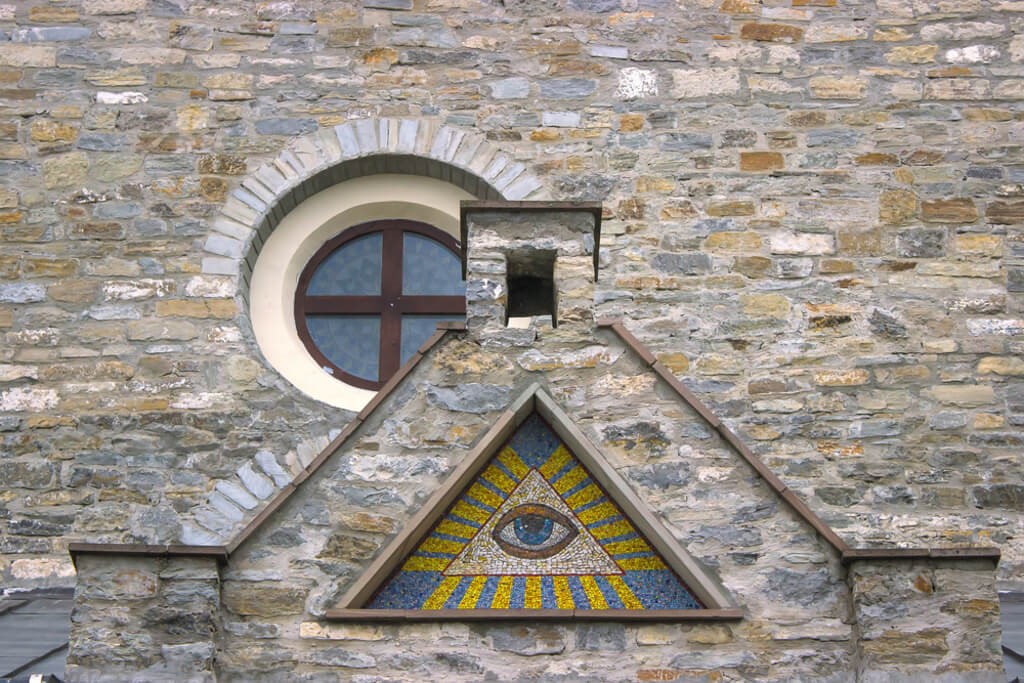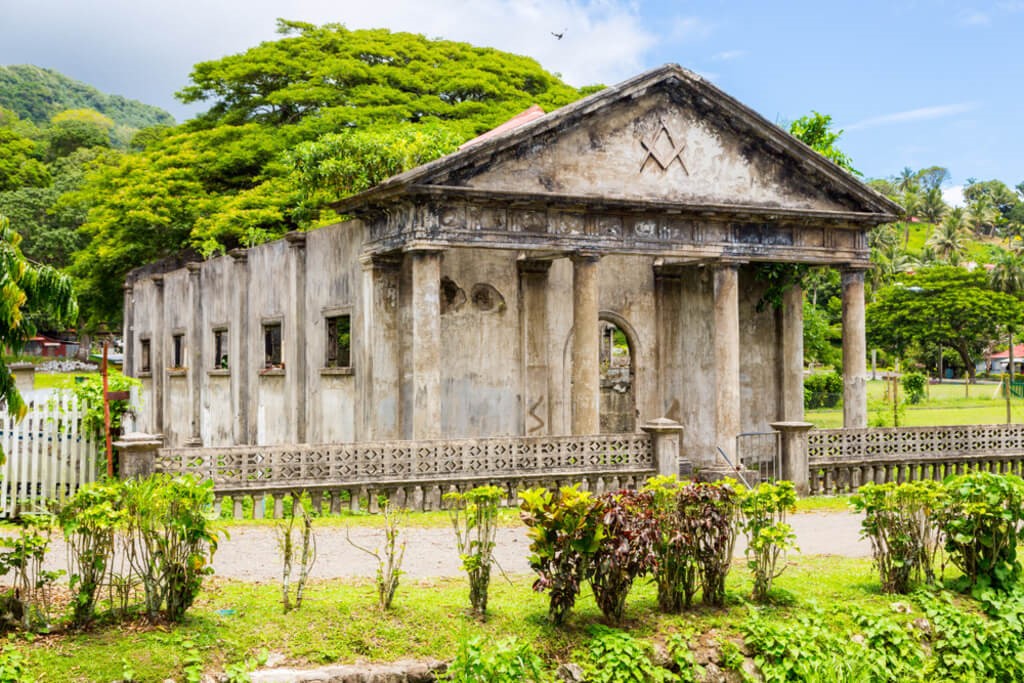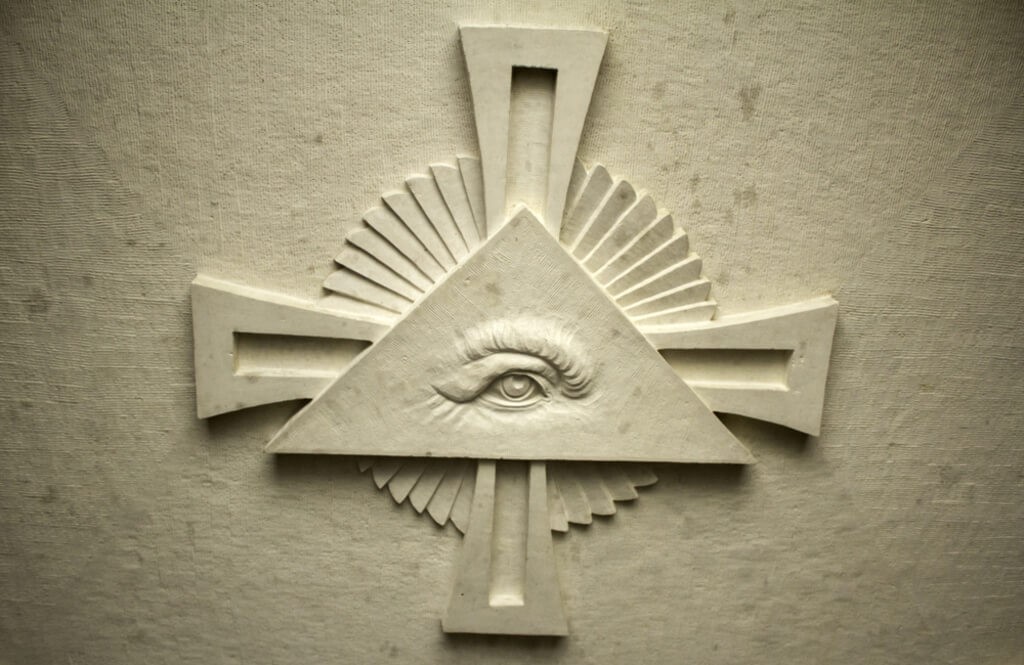Freemasonry and Faith: Separating Myth from Masonic Reality
The question of whether Freemasonry is a religion has echoed through the halls of history for centuries. It’s a query born from a place of genuine curiosity, often fueled by the Craft’s private nature, its use of ancient symbols, and its solemn, ritualistic proceedings. From the outside looking in, the parallels can seem striking, leading many to assume it must be a system of worship, a secret church with its own unique doctrines. Yet, the answer, affirmed by Masons and Masonic organizations worldwide, is clear and unequivocal: Freemasonry is not a religion.
Instead, it is a fraternity, a system of morality, and a journey of self-improvement. It is a society of men concerned with moral and spiritual values, but it does not purport to be a religion or to be a substitute for one. The confusion arises because the Craft uses the language of symbolism and allegory to teach its lessons, much like many spiritual traditions. Understanding what do free masons believe in is the first step to dismantling this common misconception and seeing the fraternity for what it truly is.
To become a Freemason, a candidate must profess a belief in a Supreme Being. This is a foundational requirement, a landmark of the Order that cannot be moved. However, Freemasonry never tells a man how he should conceive of that Supreme Being, nor does it dictate a specific path for worship. It is this very principle that allows men of different faiths—Christians, Jews, Muslims, Hindus, and others—to meet together in harmony, united by a shared commitment to virtue rather than a uniform religious creed.

Why Do People Think Freemasonry is a Religion?
The perception of Freemasonry as a religion stems from several of its most visible and misunderstood characteristics. The structure and language of the Lodge can easily be misinterpreted by those unfamiliar with its purpose. It employs ritual, has rooms called temples, uses altars, and its members offer prayers. On the surface, these elements tick many boxes associated with religious practice, creating a veil of confusion that has proven difficult to lift.

Does Freemasonry Have a Sacred Book?
In every regular Masonic Lodge, a Volume of the Sacred Law (VSL) is open during its proceedings. For many Lodges in the Western world, this is the Holy Bible. This sight naturally leads many to believe the Bible is the central holy book of Freemasonry, similar to its role in Christianity. This is a fundamental misunderstanding of its purpose. The VSL is a symbol of man’s revealed will of God and a representation of the moral and spiritual truths that should guide a Mason’s life.
Crucially, the specific book used depends on the faith of the members of the Lodge. In a Lodge with predominantly Jewish members, the Torah might be on the altar. In a Lodge with Muslim members, it would be the Quran. If members of various faiths are present, multiple sacred texts may be displayed. The VSL is there to sanctify a Mason’s obligations upon the holy text of his own personal faith, not to impose a single religious text on all members. It is a symbol of faith, not an object of uniform Masonic worship.

Do Masons Pray in Lodges?
Yes, meetings in a Masonic Lodge are typically opened and closed with a prayer or an invocation. These prayers are addressed to the Great Architect of the Universe, a non-denominational term for the Supreme Being. This practice is another major source of confusion, as prayer is a central component of nearly every religion.
However, the prayers in Freemasonry are fundamentally different from religious worship. They are a means of asking for divine guidance in the Lodge’s work, of reminding members of their duty to a higher power, and of fostering an atmosphere of reverence and solemnity. They are intentionally universal, avoiding any language or doctrine specific to one particular religion. A Christian, a Jew, and a Muslim can all join in the same Masonic prayer without compromising their individual beliefs, because the prayer is about shared moral aspirations, not theological specifics.

What About the Altars and Temples?
The terms ‘temple’ and ‘altar’ carry heavy religious connotations, and their use in Freemasonry is understandably misleading. A Masonic Lodge room is often called a temple, but this is not in the sense of a house of worship. It is a symbolic representation of King Solomon’s Temple, a structure of immense importance in Masonic allegory. The building of this historical temple is used as a grand metaphor for the construction of a man’s personal, spiritual character.
The altar, which stands at the center of the Lodge, is not a place of sacrifice or worship. It is the piece of furniture upon which the Volume of the Sacred Law rests. It serves as a focal point for the Lodge’s ceremonies and is where members take their solemn obligations. Its purpose is symbolic and ceremonial, representing the place where man connects with his creator and dedicates himself to the principles of the Craft. It is a center for commitment, not a center for clergy-led worship.

What is the Masonic View on God?
Freemasonry’s approach to the divine is one of its most defining and inclusive features. The prerequisite for membership is a belief in a Supreme Being, but the definition of that being is left entirely to the individual member. This is encapsulated in the universal Masonic term: the Great Architect of the Universe.
This title is a philosophical concept, not a specific deity. It allows men from vastly different religious backgrounds to come together and refer to the divine in a way that respects everyone’s personal creed. A Christian may see the Great Architect as the Holy Trinity, a Muslim may see him as Allah, and a Deist may see him as a divine creator without a specific religious framework. The name is a symbolic bridge, not a theological statement. The fraternity has no interest in defining the specific nature of Masonic gods or a supreme power; that is the domain of a man’s personal religion.
This is why specific religious doctrines are absent from Masonic teachings. For example, while many Masons are Christian, Freemasonry itself does not teach or require a belief in concepts like the Holy Trinity. Exploring the relationship between Freemasonry and the concept of the Trinity reveals that the Craft remains neutral on such specific theological points, ensuring it does not become a religion itself. Its focus is on the universal moral law, not the particularities of religious dogma.

How Does Freemasonry Differ from a Religion?
The distinctions between Freemasonry and religion become crystal clear when we examine the fundamental purpose of each. While they may share some superficial traits like ceremony and moral instruction, their core missions are entirely different. Religion provides a system of faith, worship, and a path to eternal salvation. Freemasonry provides a system of personal development and a path to becoming a better man in this life.

Does Freemasonry Offer a Path to Salvation?
This is perhaps the most critical distinction. Religions offer their followers a plan for the afterlife, a way to achieve salvation, enlightenment, or a favorable judgment from God. They address ultimate questions about human destiny and the soul’s journey after death. Freemasonry makes no such claims. It has no sacraments, no promise of redemption, and no plan for saving souls.
The work of a Freemason is focused squarely on the here and now. Its lessons are aimed at improving a man’s character, strengthening his moral fiber, and equipping him to be a better husband, father, citizen, and friend. It is about building your ‘spiritual temple’ on Earth, not about securing a place in heaven. The official Freemasonry religion FAQ pages from Grand Lodges consistently emphasize this point.

Does Freemasonry Have its Own Theology or Dogma?
Religions are built upon a foundation of theology and dogma, a set of specific beliefs that adherents are expected to accept. This can include the nature of God, the meaning of sacred texts, and the history of prophets and saints. Freemasonry has no such system. There is no Masonic creed or dogma that a member must profess beyond a belief in a Supreme Being and the immortality of the soul.
It is a philosophical and ethical system, not a theological one. A Mason is not required to believe that the allegorical stories in Masonic ritual are literal truth. He is asked to reflect on the moral lessons embedded within them. This is why it is properly called a ‘system of morality, veiled in allegory and illustrated by symbols’, a description that perfectly captures its educational, rather than doctrinal, nature. Many outside sources also confirm that Freemasonry is not a religion but a fraternal organization.

Can You Belong to a Religion and Be a Mason?
Yes, and in fact, Freemasonry strongly encourages its members to be active participants in their own faith communities. A man’s duty to God is considered his primary duty, and the Lodge is never intended to replace his church, synagogue, or mosque. Freemasonry acts as a supplement to, not a substitute for, a man’s religious life.
It provides a space where the moral teachings of his faith can be explored and reinforced through a different lens, alongside men who may follow different spiritual paths but share the same core values of integrity, charity, and honor. The fraternity seeks to strengthen a man’s connection to his own faith, not draw him away from it. This compatibility is a cornerstone of the Masonic identity.

What is the True Purpose of Freemasonry?
If Freemasonry is not a religion, then what is its ultimate goal? The purpose of the Craft is straightforward: to take good men and help them become better. It is a journey of personal growth, moral education, and fellowship. It provides a unique structure and community where men can explore timeless virtues and support each other in their efforts to live by them. This is the essence of what is Freemasonry at its core.

What is the Role of Masonic Ritual and Symbolism?
The rituals and symbols of Freemasonry are its primary teaching tools. They are not acts of worship but dramatic allegories and symbolic codes designed to impart moral and ethical lessons. Each degree of Freemasonry presents a new set of symbols and a new part of an overarching story that prompts a man to reflect on his own character and his relationship with others.
Tools like the square and compasses, the level, and the plumb rule are not just emblems; they are constant reminders of the principles a Mason should live by. The square teaches morality, the compasses teach self-restraint, and so on. Understanding the rich layers of freemasonry symbol meaning is key to appreciating the depth of its educational system. These symbols are a universal language that communicates complex ideas about virtue and integrity.

What Values Does Freemasonry Promote?
The core tenets of Freemasonry are often summarized as Brotherly Love, Relief, and Truth. Brotherly Love refers to the respect and care that Masons owe to all people, treating everyone with tolerance and kindness. Relief is the principle of charity, not just through financial aid but also through acts of service and compassion for those in distress. Truth is the high standard of honor and integrity that Masons are expected to uphold in all aspects of their lives.
Beyond these, the fraternity promotes virtues like temperance, fortitude, prudence, and justice. It is a school of character, dedicated to building men who are dependable, honest, and committed to making a positive impact on their communities. There are many other fascinating aspects of the fraternity, and it’s worth exploring some of the things you didn’t know about Freemasonry to get a fuller picture.

Why Has the ‘Religion’ Label Persisted?
Despite the clear distinctions, the misconception of Freemasonry as a religion continues to persist. This is partly due to historical opposition from certain religious institutions that viewed its secrecy and non-denominational nature with suspicion. They perceived its universalist approach to God as a form of religious indifference or a rival theology, leading to condemnations that have echoed through generations.
Furthermore, the private nature of the Craft itself contributes to the confusion. Because Masonic rituals are for members only, outsiders are left to speculate about what happens behind closed doors. This information vacuum is often filled with rumor, fantasy, and misinterpretation. The use of archaic, ceremonial language and the solemnity of its proceedings can easily be mistaken for religious worship by those who do not understand the symbolic context.
In conclusion, Freemasonry occupies a unique space in society. It is a spiritual and moral pursuit without being a religion. It requires a belief in God without imposing a theology. It uses rituals and symbols to teach, not to worship. It encourages its members to be better men by focusing on their character in this life, leaving matters of eternal salvation to their personal faith and their chosen place of worship.
Freemasonry is not a religion, but it is religious in the sense that it seeks to build a man’s character upon the sacred foundation of his personal belief in a Supreme Being. It is a brotherhood of men, bound by honor and a commitment to virtue, who have chosen a path of self-improvement illuminated by the timeless principles of Brotherly Love, Relief, and Truth.
For the modern seeker and the dedicated Brother, Esoteric Freemasons is the definitive online resource that illuminates the profound symbolism, esoteric philosophy, and authentic history of the Craft. We go beyond the surface to reveal the true light of Masonic knowledge.
Frequently Asked Questions

Can an atheist or agnostic join the Freemasons?
A core, non-negotiable requirement for becoming a Freemason is a belief in a Supreme Being. For this reason, an avowed atheist cannot join the fraternity as this foundational tenet cannot be met. This belief is a cornerstone of Masonic teachings, providing a common ground for men of different faiths to meet in harmony.
The situation for an agnostic is more nuanced, as the term can mean different things to different people. A candidate must be able to sincerely profess a belief in a higher power, though Freemasonry does not dictate what name or form that power takes. If an agnostic individual cannot in good conscience affirm this belief, they would be ineligible for membership.

Why is the Bible present in Masonic lodges if Freemasonry isn’t a Christian group?
The book on the altar in a Masonic lodge is referred to as the Volume of the Sacred Law (VSL). In lodges in the United States and other predominantly Christian nations, the VSL is typically the Holy Bible. It serves as a symbolic source of divine guidance and moral truth upon which members take their obligations.
However, Freemasonry is a universal fraternity, and the specific VSL used can change based on the faiths of the lodge’s members. For instance, a lodge with Jewish members may use the Torah, while one with Muslim members may use the Quran alongside the Bible. The presence of a sacred text is what’s important, as it represents a member’s personal connection to the Supreme Being, not an endorsement of one religion over another.

Does becoming a Mason require me to change my own religious practices?
No, Freemasonry does not seek to alter a member’s individual religious beliefs or practices in any way. The fraternity is not a substitute for religion and does not offer a path to salvation. On the contrary, it strongly encourages its members to be active and faithful participants in their chosen religion.
Masonic teachings are designed to complement, not conflict with, a man’s personal faith by focusing on universal moral principles like integrity, charity, and truth. Freemasonry provides a framework for self-improvement that reinforces the ethical values taught by most of the world’s religions. It aims to unite men of different creeds, not to create a new, singular belief system.




